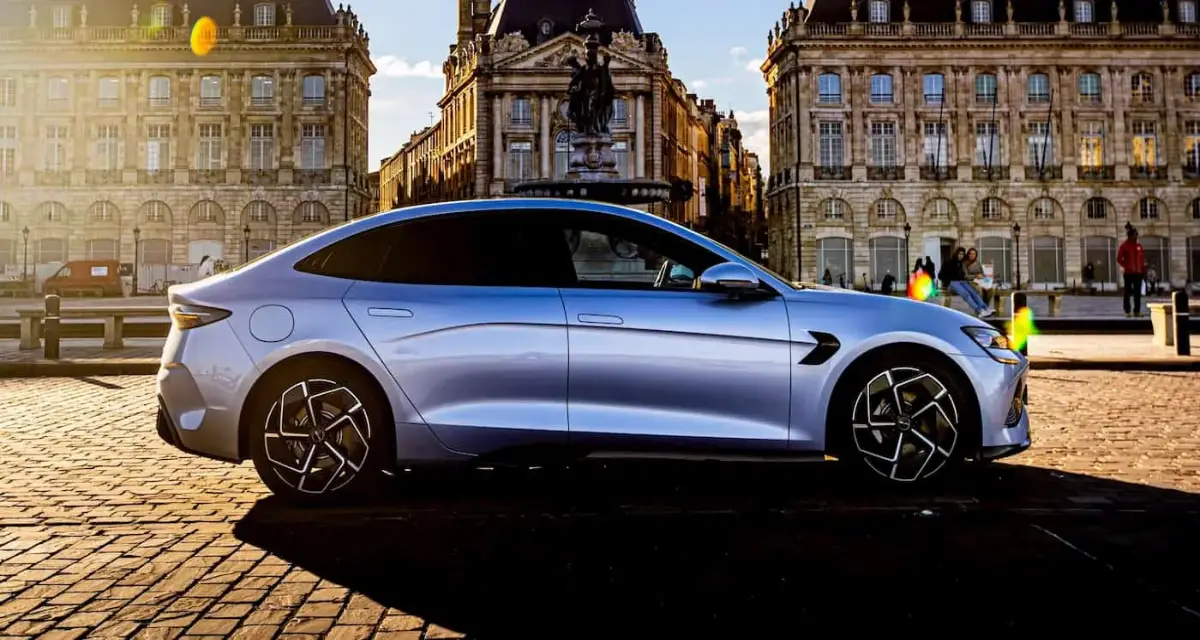
EU Imposes New Tariffs on Chinese Electric Vehicles: Here’s why

EU Imposes New Tariffs on Chinese Electric Vehicles: Here’s why
The European Union (EU) has recently announced that it will impose additional tariffs on Chinese electric vehicle (EV) imports starting next month. The inquiry into subsidies the Chinese government gave to its own EV industry led to the possibility of these levies, which may reach up to 38%. In addition to causing tensions between China and the EU, this action has important ramifications for the global auto industry.
China has aggressively promoted its electric vehicle industry through substantial state funding and support. The Chinese government spent more than 200 billion yuan (about $28 billion) on tax breaks and subsidies for electric vehicle purchases between 2014 and the end of 2022. In comparison to their rivals in the US and other countries, where such extensive governmental assistance is less common, Chinese EV manufacturers are now able to build vehicles that are both more affordable and efficient thanks to this enormous investment.
China's domestic demand for electric vehicles (EVs) has increased in addition to state backing. By December of the previous year, China accounted for 69% of all new electric vehicles sold worldwide. Chinese EV producers have a solid base thanks to this healthy domestic market.
Chinese electric vehicle exports have been growing rapidly. These exports rose 70 percent in 2023 alone, to $34.1 billion in value. With about 40% of China's EV exports going to Europe, the European Union is the biggest buyer of these goods.
Leading Chinese EV maker BYD has been driving this export boom. BYD announced record earnings in 2023 and announced plans to rank among the top five automakers in Europe. The company established itself as a leader in new energy vehicles globally by becoming the first to produce more than five million hybrid and all-electric vehicles collectively. SAIC, MG Motor, and Polestar are some of the other significant Chinese EV exporters to Europe.
The rapid increase in Chinese EV imports has caused concern among European policymakers. The European Union contends that China's substantial subsidies give it an unfair competitive edge and endanger European electric vehicle producers. In response, the EU has suggested imposing temporary tariffs on imports of Chinese electric vehicles (EVs), with varied rates applied to different manufacturers: 17.4% for BYD, 20% for Geely, and 38.1 percent for SAIC.
Nonetheless, not all EU members have agreed with this decision. Germany, in particular, has voiced worries that these tariffs would trigger a trade war and damage its car sector, which is heavily dependent on China for trade.
China has reacted strongly to the EU's proposed tariffs, condemning them as protectionist and warning that they could damage Europe's economic interests. Beijing has threatened to file a complaint with the World Trade Organization and promised to take all necessary steps to defend its rights.
China may retaliate by focusing on European exports in addition to taking legal measures. Agricultural items from the EU, such as dairy and pork, could be possible targets. China has opened an anti-dumping investigation into EU brandy imports, reportedly in retaliation for the EU's investigation into Chinese electric vehicle subsidies. French cognac producers are already worried about this move because they think China may retaliate.
The proposed tariffs could significantly impact the number of Chinese EVs entering the European market. A 20 percent tax, according to the Kiel Institute for the World Economy, may prevent 125,000 Chinese electric vehicle imports into the EU, saving around $4 billion. Since it might be difficult to reroute these exports to other markets, there will probably be a short-term drop in Chinese EV exports to the EU as a result.
In conclusion, Trade tensions between Europe and China have significantly increased as a result of the EU's decision to slap further tariffs on Chinese electric automobiles. Although the EU wants to shield its electric vehicle industry from unfair competition, this action could lead to a wider trade war. Potential retaliatory actions from China might make matters more complicated and have an impact on industries other than the automobile sector. The global governments and industry players will be closely monitoring the result of this trade conflict as the electric vehicle market grows.
Also Read: